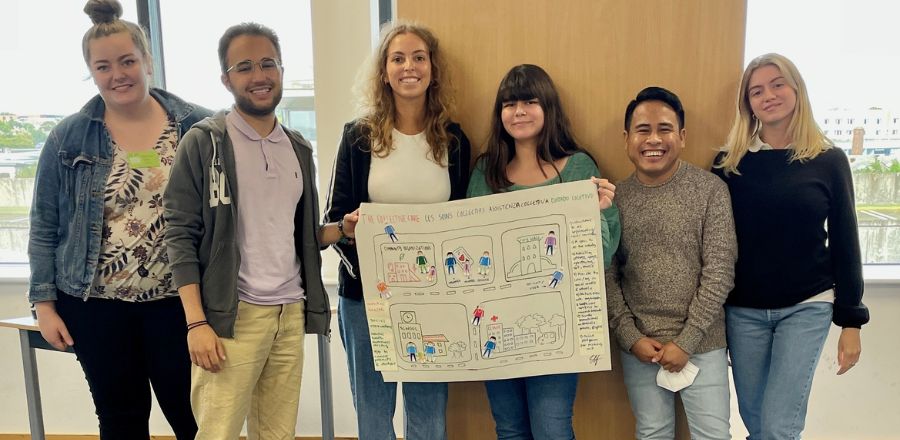Students get opportunity to develop social innovation ideas in unique international development programme

Students have the chance to help their communities in a unique social innovation development programme alongside students from across Europe, thanks to SEVERE.
SEVERE (social enterprise through virtual environments and remote entrepreneurship) is an Erasmus+ project that has been equipping students with the tools to create their own social enterprises, with a particular focus on achieving this remotely in the context of COVID-19.
Students enthusiastic about social enterprise have been invited to sign up for the chance to develop their very own social innovation idea, whilst collaborating with students from different European universities. The programme is open for those studying at Glasgow Caledonian University, Dublin City University, Montpellier Business School, PIN S.c.r.l. University of Florence, Pompeu Fabra University, and University of Aveiro. Lucky students also to have the paid opportunity to visit the University of Aveiro, Portugal in June 2023 as part of the year-long programme.
PhD student Julze Alejandre, who is researching Blue-Green Prescribing using behaviour change, implementation science, and policy, took part in the SEVERE programme during it’s first year and has now returned to mentor the next cohort of students. He said: “GCU is the co-ordinator of the programme and I got the chance to take part previously, giving me the chance to develop my social innovation knowledge whilst connecting with other students. We had the opportunity to discuss examples of social innovation that we would like to see in our own communities.
As an Alumnus of the programme, we were invited back to help mentor some of the students for this year’s cohort and help them realise what work can be done within their communities. It’s really fulfilling to be able to give back and help students using the skills that we learned during our time on the programme.”
He added: “For our project, we developed a mental health programme for students during the pandemic as a way of resolving social isolation. During the training for this, we were also shown how to use and develop online tools using platforms. Most of the training takes place online due to the fact that students are taking part from other countries, but we had in-person meetings every three to four months.”
Julze, whose research often involves pitching his findings, found the SEVERE programme to be highly effective in showing him new ways to convey his ideas. He explained: “It’s been great for me to connect the training to my PhD. My PhD is on translational work, so I spend a lot of time translating evidence into practice and policies, which is essentially what social innovation is. The pitch training was also really helpful for me, because we have to do a lot of elevator pitches for my PhD which gives us a small amount of time to convey what our PhD is.
I find that many people conducting research or doing a PhD can fall into the habit of using very technical terms when talking about our research. The pitch training allowed us to learn how to simplify what we were saying; tailor-fitting the research into conversations to make it a lot more digestible.
The pitching workshops also showed us that there are other ways of sharing your research, almost as if you’re telling a story. Stories are powerful, and even more so when you can provide evidence to back up that story – that’s what a successful pitch is!”
Looking back at his experience, Julze believes it’s a great opportunity for interested students to develop their ideas whilst gaining transnational experience. He said: “Different stages of the project took place in different countries; doing the initial training in Dublin in Ireland, then to Montpellier in France and then travelled to Florence in Italy to pitch our ideas. It was all great experience and helped us interact with stakeholders who were relevant to the projects we were all working on.”
By Rachael McAlonan
Got a SCEBE or GSBS story? Email me at Rachael.McAlonan@gcu.ac.uk or connect with me on social media here
